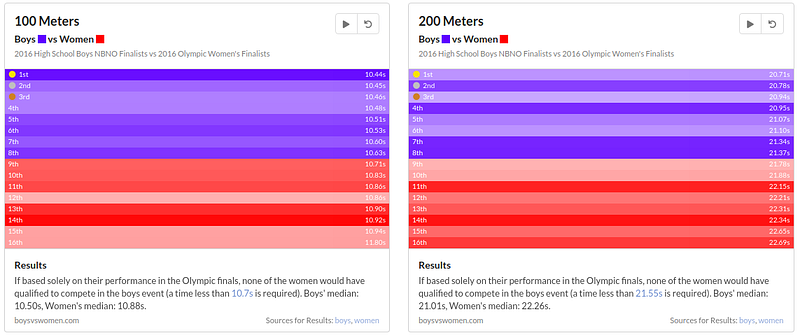Hillary Clinton is Right — We Do Need to be Sensitive To Women’s Concerns
Clinton has recently been called a “TERF” for advocating sensitivity for women’s rights.

Hillary Clinton has come under fire this week from trans advocates for her recent comments to Decca Aitkenhead in an interview with The Times, a British paper. Clinton has publicly supported transgender human rights in the past.
Clinton was asked, “Can someone with a beard and a penis ever be a woman?”
Her response was uneasy and, according to Aitkenhead, she looked visibly conflicted. “I’m just learning about this. It’s a very big generational discussion, because this is not something I grew up with or ever saw,” she said. “It’s going to take a lot more time and effort to understand what it means to be defining yourself differently.”
The interviewer pointed out lesbians who don’t want to sleep with someone with a penis are being called transphobic and that some “British feminists” have a problem with this (feminists across the world actually have a problem with this).
Clinton seemed to affirm her support for lesbians, replying, “I would say that, absolutely. Absolutely. Yes.”
She also expressed unease around men playing on women’s sports teams.
“I think you’ve got to be sensitive to how difficult this is,” Clinton said.
“There are women who’d say [to a trans woman], ‘You know what, you’ve never had the kind of life experiences that I’ve had. So I respect who you are, but don’t tell me you’re the same as me.’”
The public was swift to respond, with multiple users on Twitter calling Clinton a “TERF” (Trans-Exclusionary Radical Feminist). Media outlets like PinkNews, TeenVogue, and Out were quick to jump on the bandwagon, calling out her comments. A piece in Jezebel stated:
“One could, and should, argue that it should not be so 'difficult,' as she put it, to support and affirm people’s self-determination.”
Yet, ignoring the difficulties that arise when we accept unequivocal self-identification is to be either incredibly naive or to intentionally ignore the needs of women.
The truth is, Clinton is right — we do need to be sensitive to what women, lesbians, and feminists are saying in this debate. There are complicated issues at play here, including the very existence of sex-based rights. Attempting to navigate this issue with sensitivity rather than blind allegiance to a party-line is responsible, not transphobic.
Women’s spaces exist for a reason — because male violence exists. Women are housed in separate prisons, given segregated bathrooms and changing rooms, and permitted their own shelters not because of some old-fashioned prudery, but because men are a danger to women. Women fought hard for these spaces, which allow women access to public life. In many places across the world, women and girls still lack access to public accommodations — which keeps them at home (known as the “urinary leash”).
In prisons, women have a right to be housed away from male offenders. Consider, for example, the case of Michelle Lynne Kosilek, who was convicted of the murder of his wife. Kosilek has petitioned to be transferred to a women’s prison, which the self-identification framework would be forced to allow.
In the UK, this is already happening with convicted serial rapists like Karen White being placed in women’s prisons. White went on to rape at least two female inmates at New Hall Prison in Wakefield (he is accused of assaulting four). White was subsequently transferred back to a men’s facility, but only after the damage was already done.
While stories like White’s and Kosilek’s may appear to be exceptions that are used solely to discredit self-identification, the numbers demonstrate that these cases are a disturbingly common trend.. According to the BBC, 48% of UK inmates who self-identify as trans are convicted sex offenders. This is higher than the proportion of the general British population serving time for sex offenses — 19%.
Recognizing the threat posed to women by self-identification policies is not transphobic; it’s just reality. Policymakers should be able to simultaneously consider women’s safety and the safety and dignity of trans people. These things are not mutually exclusive.
Clinton herself has repeatedly affirmed her commitment to human rights for transgender people, stating in 2015, “We need to say, with one voice, that transgender people are valued, they are loved, they are us.”
No one should be discriminated against for their gender identity when it comes to receiving housing, employment, or government benefits. The case of Price Waterhouse v. Hopkins (1989) affirmed that discrimination on the basis of sex-stereotypes is discrimination under Title VII. The Supreme Court heard arguments last week that would recognize discrimination based on transgender identity to be sex-stereotyping — based on the arguments of Price Waterhouse. These protections should be in place. Trans people deserve human and civil rights.
However, the erosion of women’s spaces (like would occur under the Democrats' “Equality Act”) benefits men at the expense of women, putting women’s human and civil rights at risk. Self-identification lobbyists are pushing for something more than human rights — they want to take women’s rights.
We can see this motivation in the drive to allow biological males to compete in women’s sports.
The UN recognized women’s sports as an important tool for the empowerment of women and girls. Phumzile Mlambo-Ngcuka, Under-Secretary-General of the United Nations and Executive Director of UN Women, wrote in April of 2019:
“Sport can be one of the great drivers of gender equality, by teaching women and girls the values of teamwork, self-reliance and resilience. It can provide girls with social connections and a refuge from violence in their homes and communities, and help them to understand their bodies and build confidence and the ability to speak up, particularly during adolescence, when the pressure to conform to traditionally “feminine” stereotypes leads many girls to abandon sport entirely.”
Yet, by allowing biological males to compete with and against women and girls, these goals are being undermined. The website boysvswomen.com points out that world-class female athletes, including Olympians, would lose their competitions even against high school boys.

Attempts to allow anyone to self-identity into sports only benefits men. Biological females gain no advantage by competing against biological males. What we’re ending up with is men’s sports, and co-ed sports. This is a purely one-way benefit. This is not equality.
The same can be said for access to women’s spaces which were created for our safety. There’s a reason we don’t see trans men fighting to get access to men’s prisons — they know they would not be safe because there are biological differences that put them at risk.
Hillary Clinton is right to be sensitive to these concerns.
Attempting to paint nuanced discussions of sex and gender as “phobic” doesn’t benefit trans people, especially not the trans-identified people who are biologically female. The only people benefiting from sweeping generalizations and the erasure of women’s rights are men. As feminists, it’s our job to be “sensitive” to policies that will harm women — and more policymakers should be willing to stand up and say so.
The generous support of our readers allows 4W to pay our all-female staff and over 50 writers across the globe for original articles and reporting you can’t find anywhere else. Like our work? Become a monthly donor!
Enter your email below to sign in or become a 4W member and join the conversation.
(Already did this? Try refreshing the page!)





Comments